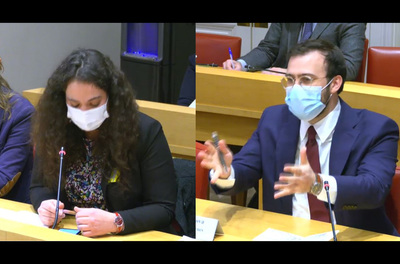On Thursday, January 13, the union representatives of medical interns were heard by the Senate’s commission of inquiry relating to hospital health in France. Verbatim.
The report drawn up by Gaëtan Casanova, president of theIsni, is overwhelming. Interns who represent 40% of hospital staff “are the hospital thermometer and it’s broken”. They work an average of 57 hours per week and sometimes reach 80 hours in surgical specialties. 70% of interns say they work beyond the legal 48-hour week, “and this with impunity”, adds Mathilde Renker, President of the’Isnar-IMG. According to a recent study carried out during a symposium in 2021 at the National Assembly, 25% of interns had been in depression or illness the previous year. No way out for them, adds Gaëtan Casanova, for whom the interns are sequestered in the CHUs, having no escape to train in the private sector or in peripheral hospitals.
Managerial Hydra
Where do these malfunctions come from? First, the original sin comes from the managerial hydra, namely the lack of separation of rank from function, according to Gaëtan Casanova: “This medical aristocracy, our former mandarins, combines four functions, teaching, research, clinical practice and management. » Impossible for them, according to the president of Isni, to do so much in 24 hours, especially since their lack of training is glaring. Second head of the hydra, “Hospital managers have a unique way of thinking, a unique school, and a unique advancement system driven by hospital managers”. Worse according to him, the impermeability between these different heads means that these people speak to each other very little and are responsible for this situation which persists.
Waiting for systemic changes
What could be done to fix it ? A global questioning of working time must see the light of day, with a generalization of duty rosters. Unionists of interns are demanding sanctions against establishments outside the nails of legality. But they also advocate the possibility of withdrawing approvals from establishments in the event of violence observed. In short, according to Mathilde Renker, “the culture of the hospital world which encourages and normalizes violence, humiliation, aggression, etc. is completely overhauled. » And to wait for systemic changes in the face of the institutionalization of violence within establishments.
–


